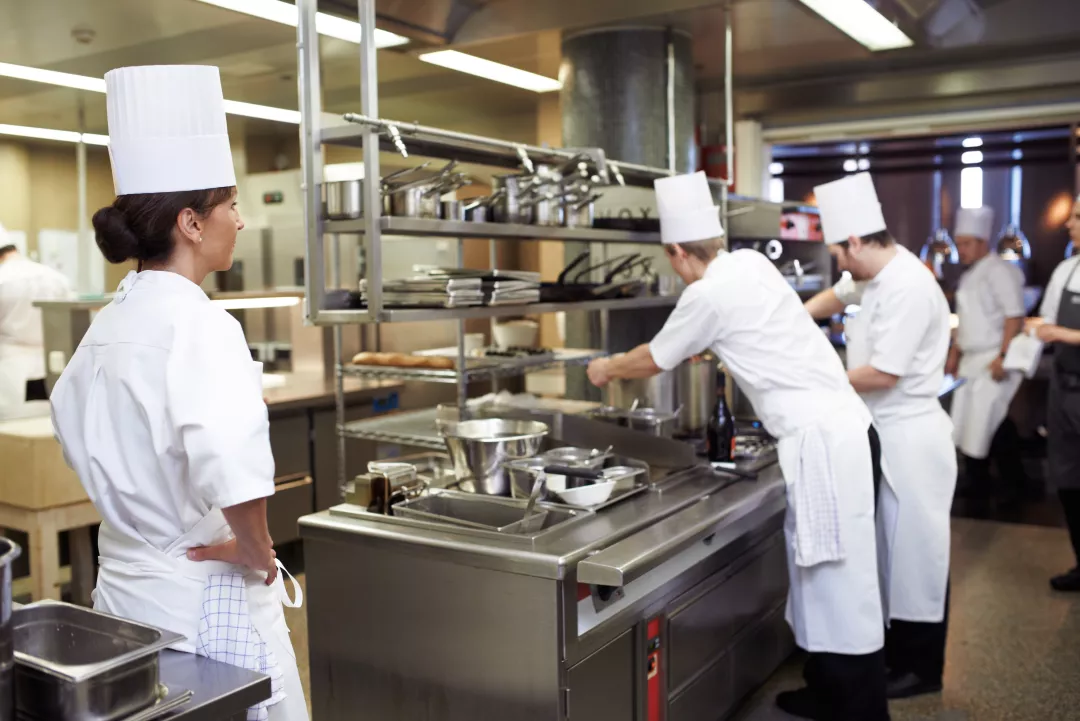General information
RDP Priority
- P6. Social inclusion and local development
RDP Focus Area
- 6B: Local development
RDP Measure
- M19: LEADER/CLLD
Beneficiary type
- Public authority / body
Summary
Empowering young chefs in rural areas can promote innovation within the hospitality industry, blending age-old techniques with modern trends. This creative fusion both revitalises menus and appeals to a diverse clientele seeking authentic experiences. By nurturing local culinary talent, rural areas can position themselves as gastronomic destinations, thereby increasing their competitiveness in the global market.
This rationale helped drive a Slovenian LEADER project by the LAG for the Zgornja Savinjska and Šaleška Valley promoting economic opportunities for young people from certified training courses in culinary skills. Traditional dishes and farming traditions were included in the qualification which has transferability potential to help address depopulation pressures facing rural Europe.
Results
Outcomes from the LEADER project encouraged a new generation of culinary experts crucial for the hospitality sector's sustainability and growth. Results included:
- Ten trainees obtained qualification certificates for their culinary expertise in traditional dishes.
- Five trainees obtained qualification certificates in wine expertise.
- Eight applied skills training sessions took place during local events.
- A promotional brochure about local and traditional food was produced.
- Media attention was achieved as part of awareness raising campaigns about hospitality careers.
- Inter-generational culinary knowledge was transferred.

Promoter
Development Agency of the Savinjsko-Šaleška region
Funding
Total budget 61 071 (EUR)
RDP support: 46 449 (EUR)
Private/own: 14 622 (EUR)
Resources
Documents
Links
Context
Encouraging a new generation of culinary experts in rural Europe is crucial for the hospitality sector's sustainability and growth. As traditional cuisines face the threat of globalisation, fostering local talent ensures the preservation of unique food heritage. Moreover, investing in culinary education can stimulate local economies by attracting tourism and creating job opportunities, ultimately enhancing community vitality.
This is the rationale for a LEADER project for Slovenia’s Savinjsko-Šaleška region called ‘Kul Saša’ (Cool Saša). The project promoters recognised that while young people showed interest in cookery shows on TV and social media, low enthusiasm levels were found among young residents for working in the hospitality industry kitchens. Improving the economic attractiveness of culinary skills for young people was identified as needed, alongside acknowledging the benefits of diversified traditional culinary offers to support the Local Action Group’s (LAG) tourism development campaigns.
In addition, synergies with local food brands and overall quality of life could result from strengthening the community’s culinary skills. Promoting local food through short supply chains offered more competitive opportunities for the LAG area. The scope for short supply chains was demonstrated during adaptations to food services forced by the COVID-19 pandemic.
New demand for the hospitality sector was predicted during the project planning for Slovenia’s designated period as a European gastronomic region during 2021, which also coincided with increased visitor forecasts for the country’s presidency of the European Council.
Objectives
The Kul Saša project proposal was developed to provide certified culinary training courses for young people and others using an innovative method of blending aspects of TV cookery shows with conventional education. Its multipurpose aims covered:
- Motivating interest in rural hospitality professions.
- Improving culinary knowledge and certified skills for young people, women and other interested parties seeking labour market opportunities.
- Diversifying local tourism through traditional cuisine to develop and promote entrepreneurship among tourist providers and caterers.
- Enriching local events (as well as events for the EU Presidency and European Region of Gastronomy) with traditional cuisine.
- Improving the inclusion of young people and women in rural life via social networks.
- Raising awareness about the importance of sustainable food systems.
- Conserving culinary heritage and local food culture by promoting authentic local meat, wine, spices, cheese and other dairy products.
Activities
Tourist providers and restaurateurs trained young people, women and other interested parties in culinary skills and standards. Awareness was also raised widely around the LAG area about the economic relevance of traditional cuisine and its sustainable development, placing emphasis on nature protection approaches to food production.
Project costs covered:
- Training for young people and others to become qualified culinary and wine experts.
- Preparation of materials, design and printing of publicity publications including a brochure about traditional and local food from Savinjska.
- Organising sampling events with volunteers to promote sales of local food and drink.
- Participation during other food fairs.
- Media engagement and event photography.
- Project management and coordination.
Main results
Outputs from the LEADER project involved:
- Ten trainees obtained qualification certificates for their culinary expertise in traditional dishes.
- Five trainees obtained qualification certificates in wine expertise.
- Eight applied skills training sessions took place during local events.
- A promotional brochure about local and traditional food was produced.
- Media attention was achieved through awareness raising campaigns about hospitality careers, including via information materials and merchandise.
- Inter-generational knowledge was transferred about the vital links between traditional food and nature-friendly farming traditions.
Key lessons
- Rural areas need to find ways to be attractive to young people and reduce the consequences of depopulation pressure risks.
- Harnessing latent potential in hospitality development as a rural economic growth tool can create a wide range of jobs accessible to all parts of society including priority groups like young people, women, newcomers, elderly or the disadvantaged.
- Young people were the main target group because opportunities were predicted as being available from implementing strategic tourism development plans. These rely on skilled labour forces and provide significant employment prospects for young people.
- Elderly women provided valuable and appreciated roles as vital sources of information for traditional dishes and their preparation.
- It was inclusive to allow other people to participate in the training if they were older than younger target groups.
Contact Information
Email: info@ra-sasa.si
